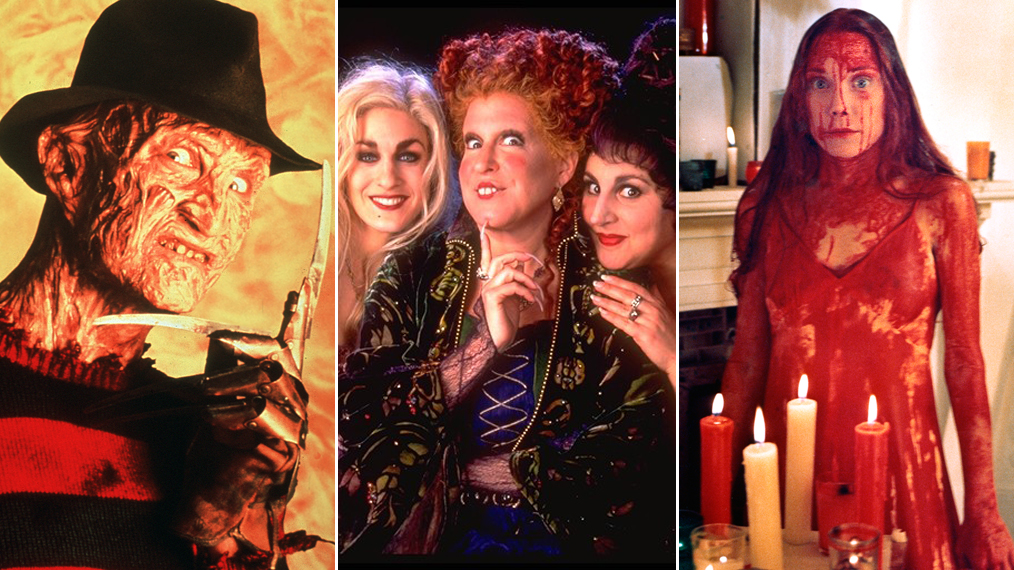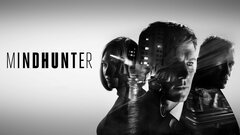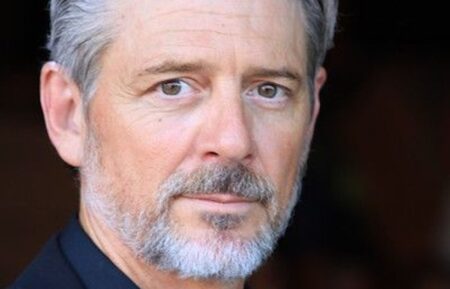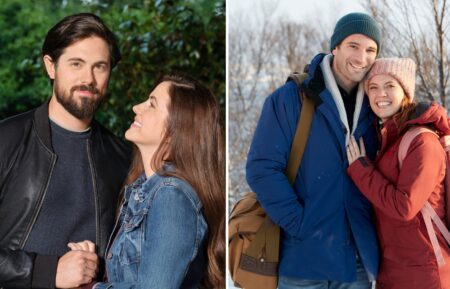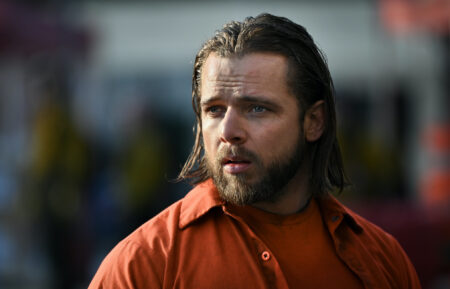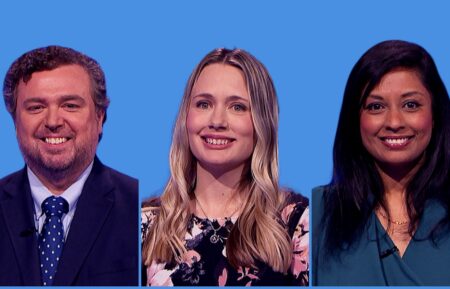‘Mindhunter’: Jonathan Groff on Playing It Straight in Netflix’s Dark New Drama
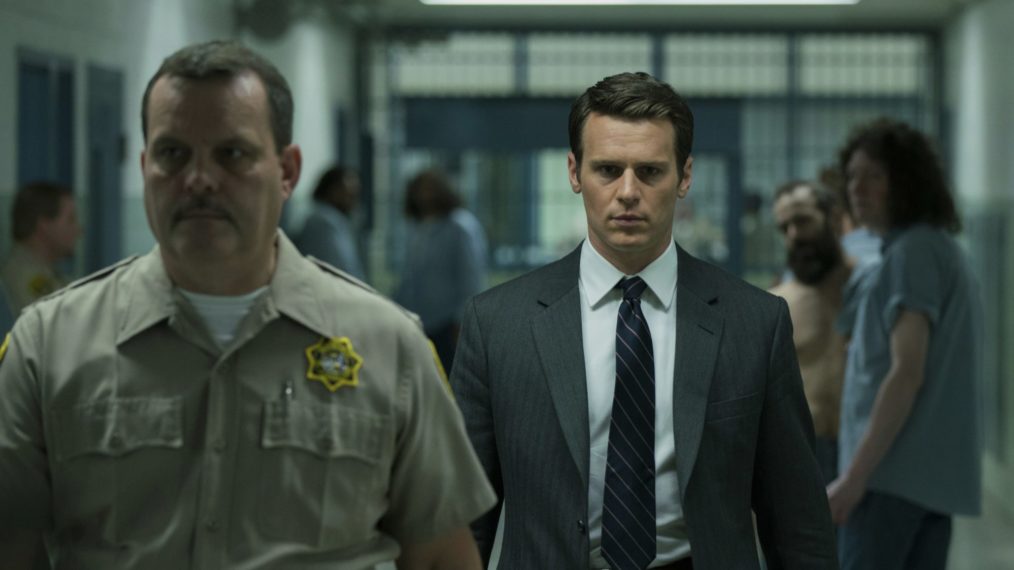
Preview
We’re used to seeing and hearing Jonathan Groff on film as the voice of Kristoff in Disney’s animated hit, Frozen, or in LGBT-themed projects like Looking and The Normal Heart, but for his latest role, he’s taking a path that’s much, much darker as the lead in the new Netflix drama Mindhunter.
The series, which drops all first-season episodes Friday on the streaming service, follows Groff’s Holden Ford—an FBI agent in the 1970s who decides that instead of simply locking away serial killers like Charles Manson and Edmund Kemper (aka The Coed Killer), why not talk to them and learn what drives their behavior in the hopes of finding and stopping others like them? Ford, somewhat naive and green, pairs with seasoned, gruff FBI agent Bill Tench (Holt McCallany) as they hit the road to talk to various incarcerated killers.
The series is based on the nonfiction book by John E. Douglas, a pioneer in criminal profiling. It is executive-produced by David Fincher (The Social Network, Seven, Fight Club), who also directed four episodes, and costars Anna Torv (Fringe), Cotter Smith, Cameron Britton and Hannah Gross.
Groff talked with TV Insider and explained why he was drawn to this darker world, whether he thinks much about being a gay man playing a straight character, and how he and his fellow actors kept things light on the very dark and serious set.
When you first heard about the project and read the script, what were your thoughts on how you would be a part of this show?
Jonathan Groff: I guess I was really intrigued by the complexity of the writing in the scenes and the arc of the character and, obviously, the David Fincher of it all. I’ve always wanted to work with him. I’m such a huge fan of his, and the project just seemed so dense and interesting that it was kind of a no-brainer, actually. And it was Netflix, so it seemed like a departure, something that I’ve never really done before and a world that I’ve never really worked in before, and it was a really incredible experience.
How would you describe Holden?
I see him as a really intelligent and thoughtful FBI agent who is going through an existential crisis, kind of like, “What does all of this mean, and are we really doing everything that we need to do?” After someone loses their life in the first scene of the first episode, it sends him down this rabbit hole of, “Is this training that we are getting at the FBI enough? Could we be doing more?”
And then he has this idea of interviewing people who are incarcerated, which initially sounds like an insane idea but ends up becoming a huge part of the Behavioral Science Unit at the FBI, which ends up becoming what it is now the strongest arm of the FBI.
But this is almost a turning point for a lot of investigation that we see play out in the show, right?
Yes. It is the late ’70s, so coming out of all this mind expansion of the ’60s and early ’70s and applying that idea to law enforcement. The FBI blows open this whole side that we now are used to talking about and are so well-versed in. But the idea that in the late ’70s the phrase “serial killer” didn’t even exist is so interesting. Part of the fun of watching this show is watching the characters stumble upon, in some ways, these interview techniques and these ideas that we are so familiar with now.
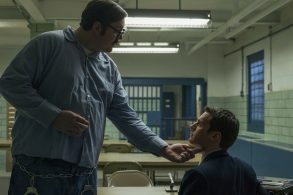
Cameron Britton as Edmund Kemper and Jonathan Groff as Holden Ford in Mindhunter.
What was your familiarity with the ’70s? Did you have to do research about what the world was like then?
Specifically, when I was told late-’70s FBI, I was like, “Oh, great, I’ll be in like bell bottoms and an insane shirt.” There was actually a version of one of the scenes where to get one of the serial killers to talk I dress like a modern hippie, but that got changed around and cut and whatever. But the FBI was a little bit frozen in time, and a little behind the times, to be perfectly honest, because they were still coming out of the J. Edgar Hoover era. It was like the suits and stuff, which is what Holden and Tench are still kind of wearing.
That was the whole point of the turning point of the FBI, that Holden is bringing in these modern ideas from society and goes back to study in school to learn about psychology and the brain and the way people think and the way they relate to each other. And he is interested in bridging that gap between the culture and the FBI.
Do you think Holden has something to learn from Debbie (Hannah Gross), who he starts dating in the first episode, that will help him in his work? We see from the start that she sees things differently than he does.
She is studying to get her Ph.D in college, so she is this brainiac, and when we first meet in that bar she quizzes him on psychology and famous ideas and people in the world of psychology that he doesn’t know anything about. And she says, “Wow, you work for the Behavioral Science Unit, but you don’t know anything about human behavior.” It is kind of a light bulb moment for him to explore the world of psychology more and see how it could be applied to the sort of black-and-white world of law enforcement.
Their relationship in the beginning sort of lights a fire because she blows his mind and opens up a world for him that he didn’t really know existed, and he’s obsessed with using those thoughts and ideas and experiments, and applying them to the world of law enforcement in some ways that work and some ways that do not work.
What is interesting with that relationship is it evolves throughout the season because his ambition grows and gets more hungry as time goes along, and what starts out as a great way of connecting ends up becoming incredibly complicated in his relationship with Debbie.
The relationship with Tench is so fun as one of those great TV partnerships. How does that relationship progress, especially as the guys seem so different in the beginning?
We are kind of like the odd couple, I think. Holden is a nerdy and incredibly ambitious dude, and then Tench has sort of reached a point in his career where he is ready to just go on cruise control. But to his credit he can’t deny the fact that this kid has kind of come up with a good idea. It sort of lights a fire, an inspiration in Tench no matter how begrudgingly he does move forward and busts open the Behavioral Science Unit with all these new ideas.
Holt and I had so much fun together playing with that odd couple dynamic, because he and I—both as our characters and not as our characters—are so different in so many ways, and we had so much fun playing with that relationship.
What was your thought process on the sexuality of the character?
It is a huge part of the character, because it blows his mind sexually, as well. It is not that Holden is a virgin necessarily, but he has sort of an innocence about him, and Debbie is that free-spirited ’70s chick, and she starts blowing his mind sexually. She is so open and free and liberated. And he is so kind of buttoned-up and awkward about it all. She teaches him a lot about sex.
[Holden] is having his sexual awakening while he is talking to these killers that are so f***ed up sexually, so he is feeling this sexual liberation at the same time as he is talking to these repressed murderers who, because of their repression and their psychology and their relationships with their mothers, can only get off by cutting off women’s necks and f**king their heads.
It is an interesting situation sexually and psychologically, and the crossover is a huge part of Holden and a huge part of the character’s journey. And as you see later on in the season as well, the sex element as related to Debbie, and as related to the reign of the serial killer gets very muddled and complicated.
I’ve talked to Matt Bomer about being out in real life and still playing straight roles. I think there is something revolutionary about that—maybe quietly revolutionary—but is that something you thought about in playing a straight character here?
It never even occurred to me, because even on Looking [the HBO gay-centric series in which Groff starred from 2014-16] we had straight guys playing gay guys, and gay guys playing straight guys. I was having sex onscreen with people who were straight in real life or gay in real life, it was so many different things and no one ever talked about the straight guys playing gay. Intimacy is such a specific thing between people that it isn’t something that I think about while I am acting, I have just been acting whatever is written. It is just not an issue.
How was shooting this show different from Looking or even something like Frozen? Did this one get in your head?
This sounds insane, and it happened with The Normal Heart, which was so serious and obviously everyone is dying of AIDS and the material is so intense and so dark that I think to counteract that we laughed a lot on set, between takes and we would keep it light. For Mindhunter we were shooting for 9 or 10 months, so it was a long shoot and it was long days, but we just made it really fun. We obviously committed to the darkness and committed to the intensity as was required, but for me, personally, at any kind of moment I had to come up for air and breathe I would embrace those opportunities. So we just laughed a lot, we really did.
Here is the trailer for Mindhunter:
Mindhunter, all episodes premiere October 13, Netflix.

